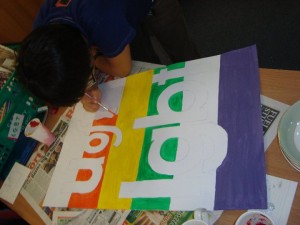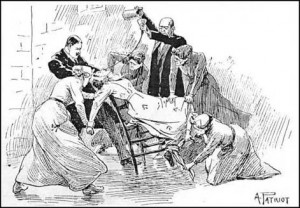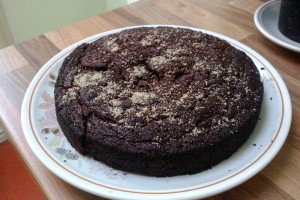Today I’ve been grumpily following the Same-Sex Marriage Bill debate, contemplating my thesis corrections and pouring acetic acid into my sore ear so I have to admit, I’m not in the best of moods. And then I saw that the Times Higher Education decided to encourage academics to share their stories of their worst students on twitter. Aside from the obvious problems about professionalism and ethics, I don’t like the sneering.
You see, I was someone’s worst student.
Not in university – I’d mostly sorted myself out by then – but in sixth-form. I was doing an A-level in something I’d previously been good at and for which I was in the top set at GCSE, but at A-level my grades plummeted from As to Es. I couldn’t understand the material – I tried so hard and it constantly defeated me. I tried reading around the subject; I tried talking myself through it; I tried just knuckling down and memorising it. It slipped away from me, no matter what I tried or how hard I tried. It’s a horrible feeling to be so utterly powerless – to feel like your intellect has abandoned you, that whatever you try you’re going to fail, that you are stupid and worthless and wasting everyone’s time. It felt like being dropped into a world where the rules were opaque and all-powerful and I was constantly one crucial step behind. Every lesson was an ordeal, something to just survive for the next two hours and, eventually, to resent.
Naturally, the teacher and I loathed each other. He’d taught me when I was actually good at this stuff and in retrospect, probably couldn’t understand why I was suddenly so appallingly bad at it. If I was in his position and a student had suddenly gone from being one of the best in the class to the very worst, I would have sought help for this student. He didn’t. Instead he alternately ignored me – it was a very results-focused school and I was clearly not going contribute to his clutch of As – and bullied me. Because I was 17 and a bit of a twat, I made it quietly clear that I resented him every bit as he resented me. One day I snapped and told him that I wished I could drop this subject (I was very polite in my twattishness!). The next day, my Head of Year pulled me into her office and berated me for hurting his feelings.
I threw up every morning before school from the sheer anxiety of once more stepping into that classroom and once more, being utterly, helplessly adrift.
I have never, ever forgotten that feeling of being so totally lost. Not when I found a subject I loved, not when I got a First for my BA, not when I graduated from my masters, not when my examiners shook my hand after my viva, and especially not when teaching.
I’ve taught students who were uninterested, resentful and hungover – it’s one of the problems of teaching a compulsory Language module when most of the students would rather be doing Literature. I’ve occasionally got frustrated when marking. I know I don’t have much experience, but I hope I never get worn down by it. I hope I create an atmosphere in my seminars where students can make mistakes, test ideas that might not work or admit that they don’t understand something. I hope I can be sensitive to the students who struggle, and I hope I know when I’m out of my depth. I hope I never belittle or sneer at students – not when they frustrate me, not when they apparently don’t try, not when they appear to be hopelessly bad at something. I hope I am respectful and compassionate to the ones who resent me. I hope I am patient when it matters.
As an academic, we tend to be working in an area we love and that we’re good at. We’ve probably never been crushingly bad at something we now teach. Given the kind of grades we’re expected to get to enter a degree programme, then a Masters, then a PhD, we may never have been crushingly bad at any academic subject. I, with my E in that A-level, somehow sneaked in. I’m not proud of that grade, but the harsh lessons I learnt in that classroom have shaped my teaching forever.
Other posts:
Caroline Magennis: On Teaching
Kirsty Rolfe: Talking teaching on Twitter (and talking nicely to students)



